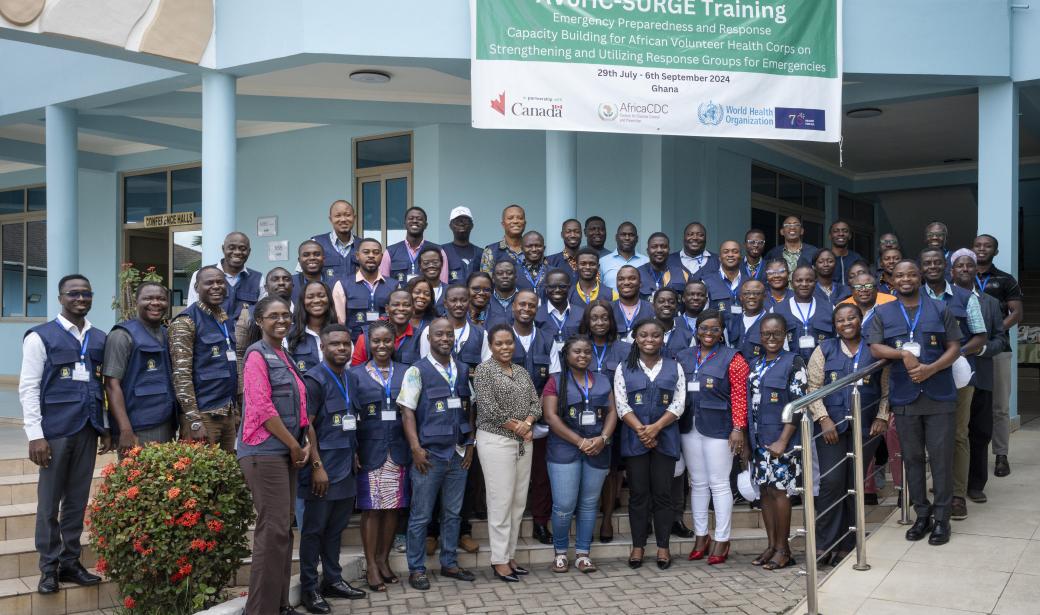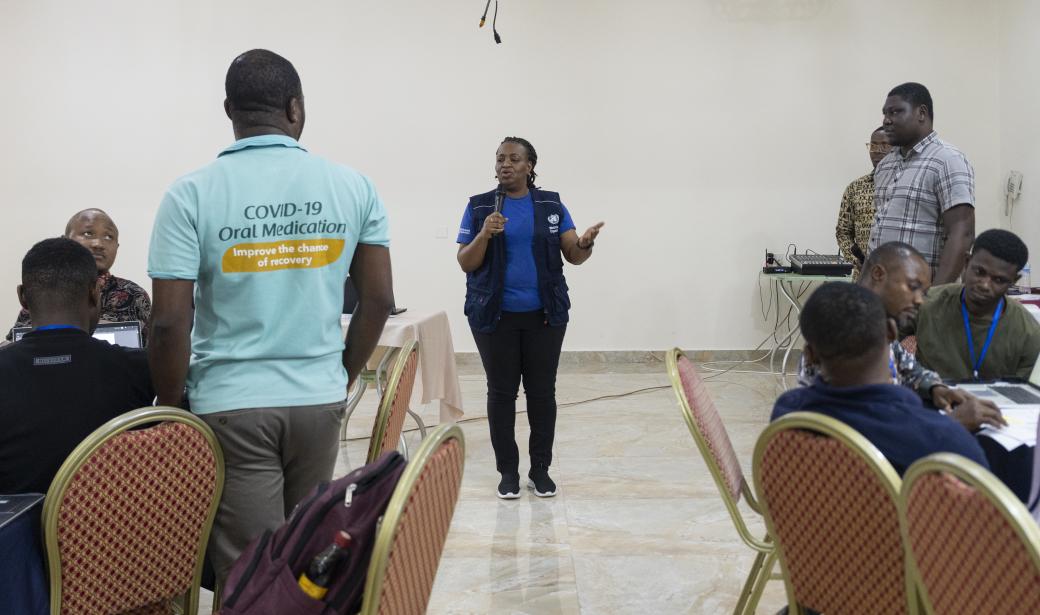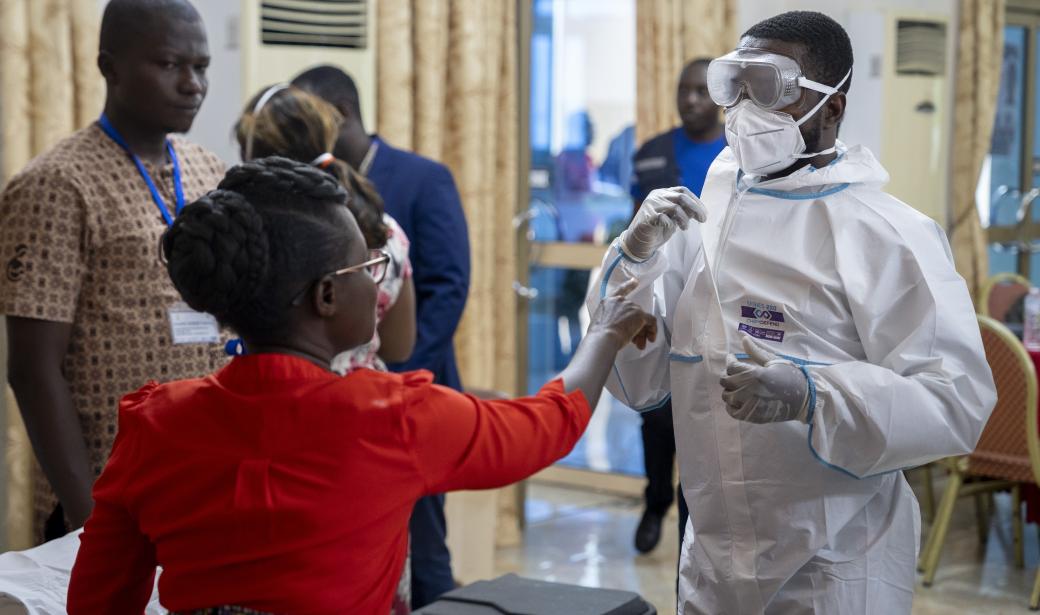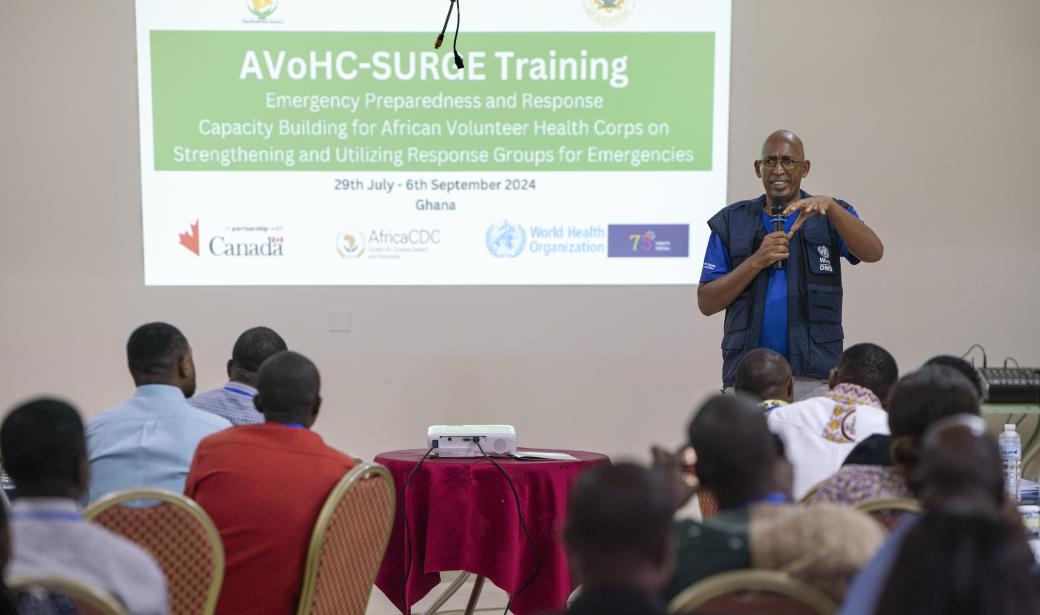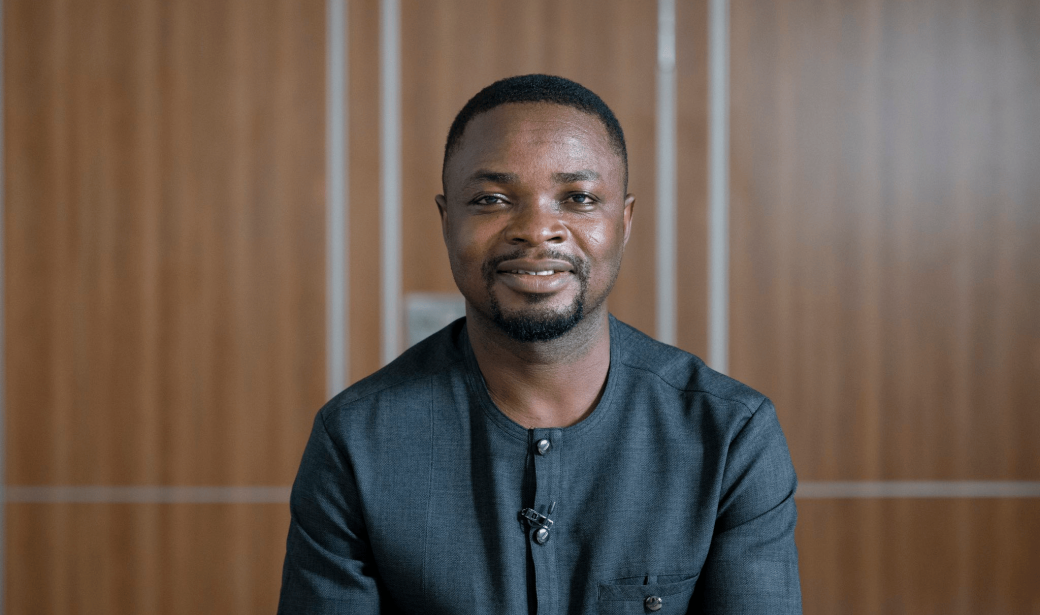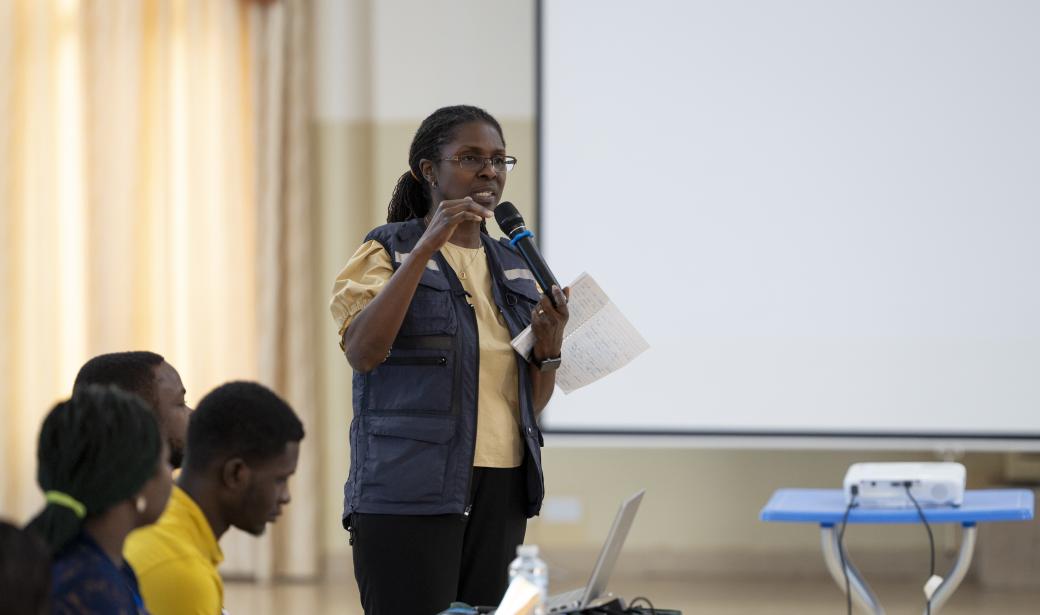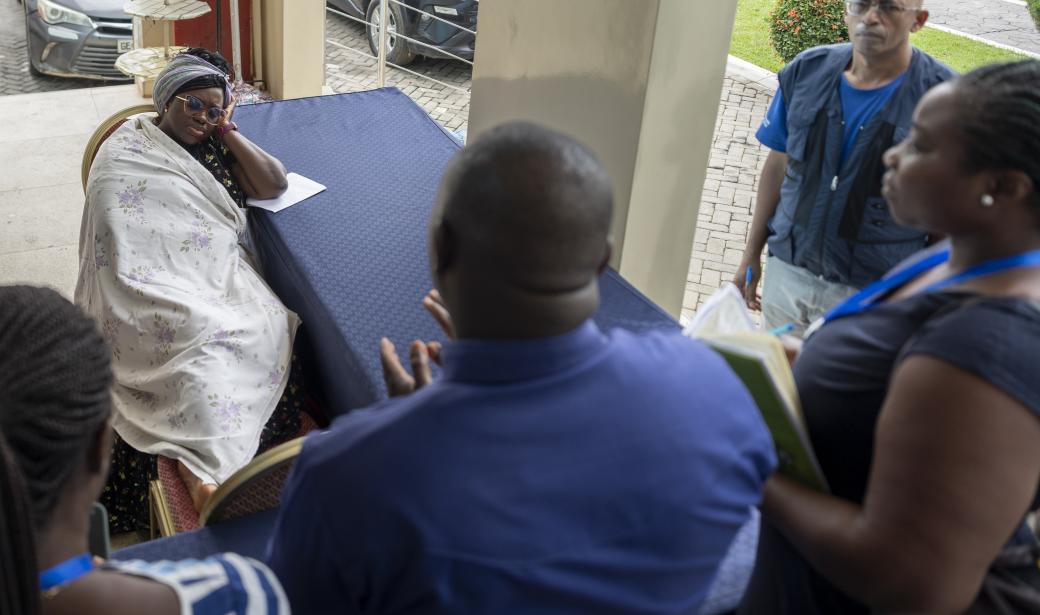The African Region faces over 100 health emergencies annually, stretching health systems to their limits and threatening millions of lives. From devastating disease outbreaks to complex humanitarian crises, these emergencies disrupt progress and deepen vulnerabilities. The 2014-16 Ebola Virus Disease outbreak in West Africa is a stark reminder of the cost of unpreparedness, claiming over 11,000 lives and inflicting an economic toll of $53 billion. This staggering loss underscores the urgent need for robust systems to prevent, detect, and respond to public health threats before they spiral out of control.
To strengthen the continent's ability to tackle such emergencies, the World Health Organization (WHO), in partnership with the Africa Centre for Disease Control and Prevention (Africa CDC), introduced the African Volunteers Health Corps (AVoHC) through the Strengthening and Utilizing Response Groups for Emergencies (SURGE) initiative. As a cornerstone of WHO Africa’s flagship emergency preparedness and response programs, this initiative is designed to build a resilient, rapid-response system, equipping African countries with the tools and expertise needed to effectively address public health threats before they escalate.
Between July and September 2024, WHO Ghana, in collaboration with the Government of Ghana, conducted an intensive four-week training program to strengthen the capacity of 50 multi-sectoral responders. Drawn from various government ministries and agencies, these responders received comprehensive training in Public Health Emergency Operations (PHEOC), Rapid Response Team (RRT) management, Gender-Based Violence (GBV) prevention, the Prevention of Sexual Exploitation, Abuse, and Harassment (PRSEAH), and the Humanitarian Overview and Cluster Approach to emergency response.
Speaking at the opening session, Dr. Guyo Argata Guracha, Emergency Preparedness and Response Cluster Lead, delivered remarks on behalf of WHO Representative in Ghana, Dr. Frank Lule. He emphasized the significance of the initiative in enhancing Ghana’s emergency response capacity.
"This training is pivotal in ensuring Ghana has a pool of experts ready to respond rapidly to health emergencies. It is about building resilience, protecting the most vulnerable, and ensuring that no one is left behind as we strive to deliver timely and equitable healthcare during crises", he said.
"This training is pivotal in ensuring Ghana has a pool of experts ready to respond rapidly to health emergencies. It is about building resilience, protecting the most vulnerable, and ensuring that no one is left behind as we strive to deliver timely and equitable healthcare during crises", he said.
Ghana is poised to strengthen its human resource capacity to respond effectively to diverse emergencies through the AVoHC-SURGE training initiative. Speaking at the opening session, the Director of Public Health at the Ghana Health Service, Dr Franklin Asiedu-Bekoe, emphasized the critical need for preparedness, stating, "Ghana is not immune to health outbreaks, so this training is vital. It will enhance our health system’s ability to respond swiftly and effectively to emergencies".
The training covered four core modules over four weeks, including simulation exercises, practical drills, and knowledge sharing among participants and facilitators. The modules addressed critical areas such as humanitarian response, gender-based violence, and risk communication, equipping participants with the skills needed to manage both medical and social aspects of public health emergencies.
Nana Afia, a participant at the training, reflected on the impact of the training, “This workshop has exposed us to essential tools and systems for managing emergencies, particularly in coordinating multisectoral responses. It has given us the confidence to deploy quickly, work efficiently, and handle the complexities of health emergencies."
Another participant, Jerela, emphasized the value of teamwork. He said, “Having been part of several emergency responses, I can truly appreciate the value of this training. It has not only equipped me with essential concepts and practical skills but also emphasized the importance of teamwork. Working together as a multidisciplinary team ensures that we can respond more efficiently and effectively in any emergency situation."
This training marks a significant step in Ghana's journey toward building a resilient health emergency response system. By empowering local responders and fostering multi-sectoral collaboration, WHO Ghana, with funding from Canada’s Global Initiative for Vaccine Equity (CanGIVE), continues to support Ghana’s efforts to safeguard public health. The successful implementation of this initiative was made possible through the leadership of the Ghana Health Service, the Ministry of Gender and Social Protection, and the National Disaster Management Organization.
The AVoHC-SURGE training not only strengthens Ghana’s emergency response capacity but also sets a powerful example for the African Region. With improved preparedness, Africa is better positioned to face health emergencies head-on, protecting lives and preventing future crises.
For Additional Information or to Request Interviews, Please contact:
Abdul-Lahie Abdul-Rahim Naa
Communications Officer
WHO Ghana Country Office
Email: abdullahiea@who.int
Tel: +233 20 196 2393
For Additional Information or to Request Interviews, Please contact:
Abdul-Lahie Abdul-Rahim Naa
Communications Officer
WHO Ghana Country Office
Email: abdullahiea@who.int
Tel: +233 20 196 2393



